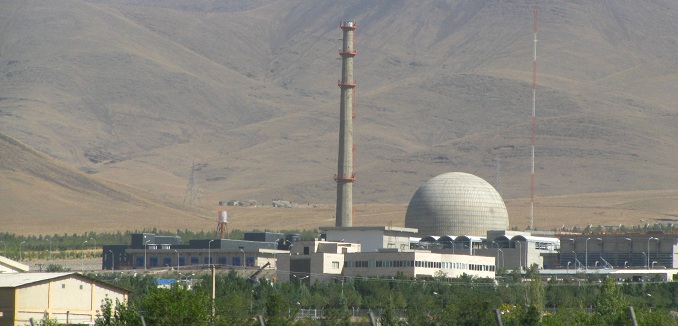Statements made today by Iranian Foreign Minister Mohammed Javad Zarif, which, per Reuters, committed Iran to making continued progress on its plutonium-producing facility at Arak “despite an agreement with Western powers to halt activity,” are set to fuel skepticism about White House assurances that the interim deal worked out in Geneva freezes Iran’s nuclear program in place for six months.
There had already been substantial debate over whether the deal halts Iran’s progress on its uranium track. The language seems to allow Iranian scientists to continue enriching uranium, as long as they convert anything over their current stock of 3.5% pure material into oxide. But according to analysis by Mark Hibbs, posted to the Arms Control Wonk blog partially sponsored by the left-leaning Ploughshares Fund, that process can be reversed within a few weeks. Olli Heinonen and Simon Henderson – respectively a former deputy director of the United Nation’s International Atomic Energy Agency and the director of the Washington Institute’s Gulf and Energy Policy Program – came up with roughly the same figures.
The terms of the interim agreement, then, seem to allow Iran to end up with the same number of centrifuges it has now and more enriched uranium on hand. Western advocates of the deal have found it difficult to successfully characterize that scenario as a ‘freeze.’
Zarif’s announcement now threatens to trigger a similar debate regarding progress Iran will be allowed to make on its plutonium track. Iran’s Arak nuclear facility contains a heavy water production facility and a facility for its plutonium-producing reactor. Zarif announced that “no new nuclear fuel will be produced and no new installations will be installed” but that “construction will continue.” Reuters also noted that the language appears to allow Iran to produce parts off-site not just for the heavy water production facility but also for the reactor, and to install those parts when the interim agreement expires. Either scenario seems difficult to square with descriptions of the deal that have Iran ‘freezing’ its plutonium track.
The Washington Post noted that the construction may undermine “trust-building” between the U.S. and Iran, and contextualized Zarif’s announcement against the backdrop of “the U.S. view… that Iran has cheated on past agreements.”
The announcement may alternatively end up getting read as part of a controversy that erupted yesterday, in which Iranian Foreign Ministry Spokeswoman Marziyeh Afkham declared that the White House’s characterizations of the interim agreement – and more specifically, a White House factsheet released over the weekend celebrating the deal – mischaracterized Iranian commitments. Regarding Arak, the administration’s factsheet flatly stated that “Iran has committed to no further advances of its activities at Arak,” without distinguishing between the heavy water production facility and the reactor. If Iran had not made such commitments, the incident may deepen skepticism regarding White House characterizations of the deal, which is already being criticized for risking most of the international sanctions regime against Iran in exchange for token Iranian concessions.
[Photo: Nanking2012 / Wiki Commons]




